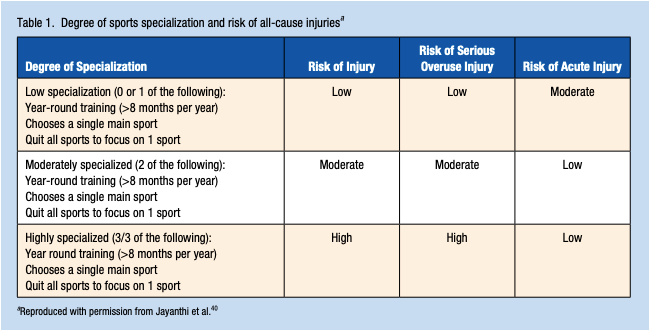Specialized Risk Competitions
In today’s ever-evolving economic landscape, understanding and managing risks is vital for organizations across various sectors, particularly in finance and business. Specialized risk competitions aim to provide a platform where experts can showcase their abilities to identify, analyze, and propose solutions to significant risks within their industries. This article delves into the intricacies of such competitions, their importance, and how they contribute to advancing risk management practices.
Introduction to Specialized Risk Competitions
Specialized risk competitions are structured events that invite participants—often composed of industry professionals, academics, and students—to confront real-world challenges related to risk management. These competitions not only offer a testing ground for innovative ideas but also enhance networking opportunities among participants, allowing for the exchange of knowledge and experience.
By engaging in these competitions, participants are tasked with addressing issues such as regulatory changes, market volatility, cybersecurity threats, and operational risks. The importance of these contests is further amplified by the rising complexity of risks in a globalized economy. Herein is a discussion of the main aspects of specialized risk competitions, including the participants, evaluation criteria, and the benefits of involvement.

Understanding the Concept of Risk in Competitions
Defining Risk within Competitions
At its core, risk is defined as the possibility of an undesirable outcome resulting from a given action or decision. In the context of specialized risk competitions, participants are required to manage different types of risks such as:
- Strategic Risks: Risks that affect an organization’s ability to achieve its objectives.
- Operational Risks: Risks arising from inadequate or failed internal processes.
- Financial Risks: Risks related to financial loss or adverse financial conditions.
- Compliance Risks: Risks associated with failing to comply with laws and regulations.
Types of Specialized Risk Competitions
There are various types of risk competitions, including:
- Case Competitions: Participants analyze a specific case study related to risk management and present their solutions.
- Hackathons: Focused on cybersecurity, participants create solutions or tools to mitigate risks.
- Simulation Competitions: In these events, participants engage in simulated environments to manage risk scenarios effectively.
Benefits of Participating in Specialized Risk Competitions
Skill Development
Competitions provide participants the chance to hone their analytical and problem-solving skills. Through the challenges presented, participants learn to think critically and strategically about risk management, enhancing their employability prospects.
Networking Opportunities
Being part of specialized competitions often leads to valuable connections with industry professionals, judges, and fellow participants. Such relationships can prove beneficial in furthering one’s career and gaining insights into industry practices.
Recognition and Prizes
Many competitions offer recognition and awards, which can greatly enhance a participant’s resume. Winning or even participating can provide a platform for showcasing expertise to employers or granting access to mentorship opportunities.
Evaluating Performance in Risk Competitions
Judging Criteria
The effectiveness of specialized risk competitions heavily relies on robust judging criteria, which typically encompass:
- Creativity: The uniqueness of the proposed solutions.
- Feasibility: How practical the solutions are for implementation.
- Clarity: The ability to communicate ideas succinctly and effectively.
- Analytical Depth: Quality of analysis and depth of understanding demonstrated in the presentation.
Real-world Applications of Knowledge Gained
Translating Competition Intellect to Industry Practice
Insights gained from participating in competitions can be applied directly to real-world risk management practices. For instance, simulated environments allow participants to experiment with risk scenarios they may face in their careers, preparing them for the challenges ahead.
Case Studies of Successful Risk Management Solutions
Many innovative solutions have emerged from risk competitions, leading organizations to adopt new technologies or strategies that proactively manage risks. Here are notable examples from recent competitions:
- Implementation of AI-based analytics to predict financial risks.
- Development of risk assessment frameworks for compliance with emerging regulations.
Future of Specialized Risk Competitions
As the business landscape continues to evolve, so do the needs surrounding risk management. The future of specialized risk competitions looks promising, with innovations poised to address the following trends:
- Increased Focus on Cybersecurity: Given the rise in cyber threats, competitions are likely to place more emphasis on cybersecurity solutions.
- Integration of Technology: Utilizing emerging technologies in risk assessment will become a central theme, allowing participants to explore the intersection of technology and risk management.
Conclusion
Specialized risk competitions present an exciting opportunity for participants to engage with significant industry challenges in a competitive environment. By fostering skills development, networking, and innovation, they serve as a catalyst for improving risk management practices across various sectors. The insights gained and the relationships built during these competitions can lead to substantial career advancements and the creation of new solutions that mitigate risks effectively.
With the future of risk management continuously unfolding, participating in these competitions not only enables individuals to showcase their expertise but also contributes to the broader discourse on how to manage risks in a dynamic business landscape. As such, educators, institutions, and organizations should prioritize support for these competitions to cultivate the next generation of risk management professionals.
For those interested in exploring similar topics further, consider reading this article and this one that delve deeper into the importance of risk management in various sectors.
